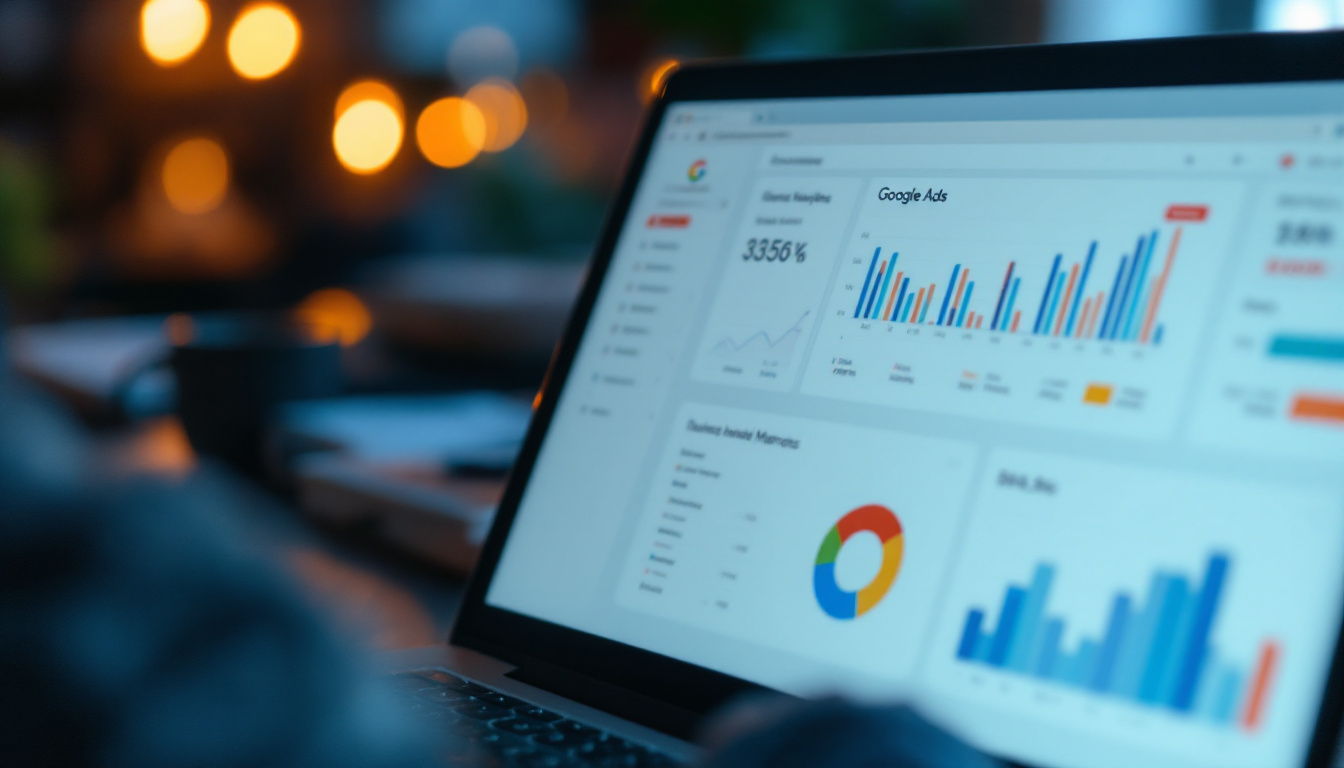What Arlington, TX Businesses Should Know About Google Ads Updates

In today’s digital advertising landscape, staying informed about updates to platforms like Google Ads is essential for businesses to maintain a competitive edge. As a bustling hub for various industries, Arlington, TX, has many local businesses that rely on effective online marketing strategies. This article explores the latest Google Ads updates, their implications for pay-per-click (PPC) strategies, and how businesses can adapt to maximize their advertising efforts.
Understanding the latest Google Ads updates
Google Ads continually evolves to enhance user experience and improve advertising effectiveness. Staying attuned to these updates enables businesses to leverage new features and maintain their advertising performance. Recent changes have focused on automation, improved targeting capabilities, and enhanced reporting tools, allowing marketers to make more informed decisions.
Among the most notable updates is the expansion of automated bidding strategies, which now offer more customization options. Advertisers can set specific targets for return on ad spend (ROAS) or cost per acquisition (CPA), allowing for greater flexibility in campaign management. Additionally, Google has introduced consolidated targeting settings that simplify audience targeting while maximizing reach across platforms.
Key Features in the Latest Updates
Some of the key features in the latest iterations of Google Ads include:
- Performance Max Campaigns: These campaigns optimize ad placements across Google's entire property suite, including Search, Display, YouTube, and Gmail, using a single campaign structure.
- Enhanced Smart Shopping Campaigns: This update merges standard Shopping campaigns with Smart Shopping for streamlined management and improved conversion tracking.
- Search Ads 360 Updates: Enhanced integration with Google Analytics for better tracking and reporting of advertising performance.
In addition to these features, Google has also introduced a more robust set of tools for advertisers to analyze their campaign performance. The new Insights page provides real-time data on trends and performance metrics, allowing marketers to quickly identify areas for improvement. This feature not only highlights which ads are performing well but also suggests actionable strategies based on historical data and market trends. Such insights can be invaluable for businesses looking to stay ahead of their competition in a rapidly changing digital landscape.
Moreover, the updates have placed a strong emphasis on user privacy and data security. With the introduction of new privacy controls, advertisers can ensure that they are compliant with evolving regulations while still effectively reaching their target audiences. This focus on privacy is crucial as consumers become increasingly aware of their data rights, and it allows businesses to build trust with their customers while navigating the complexities of digital advertising.
How updates impact your PPC strategy
The influence of Google Ads updates on PPC strategies cannot be overstated. These changes necessitate regular reevaluation of ad campaigns to optimize for performance and results. One of the primary ways updates affect PPC strategy is through shifting focus toward automation. While this can enhance efficiencies, it also requires advertisers to adapt their approaches.
With Google's increasing reliance on machine learning, advertisers must ensure their campaigns are structured to feed the algorithms the right data. This might involve defining clear conversion goals, expanding audience segments, and closely monitoring performance metrics. An understanding of these updates aids businesses in maximizing their ROI while minimizing wasted ad spend.
Adjusting Budgets Accordingly
Given the automation trends and changes in bidding strategies, adjusting advertising budgets is crucial. Businesses may need to allocate more resources to campaigns that leverage new features or reconsider how budgets are assigned across different campaigns. A balanced approach between manual control and automated tools will be key to achieving the best outcomes.
Moreover, as Google introduces new bidding strategies, such as Target CPA or Target ROAS, it becomes essential for advertisers to analyze historical performance data. This analysis can provide insights into which strategies yield the best results for specific campaigns. Additionally, experimenting with budget adjustments during peak seasons or promotional events can lead to enhanced visibility and engagement. By staying agile and responsive to these updates, businesses can ensure that their PPC strategies remain competitive and effective in the ever-evolving digital landscape.
Furthermore, the introduction of new ad formats and extensions can also play a pivotal role in shaping PPC strategies. For instance, utilizing responsive search ads allows for greater flexibility and personalization, enabling advertisers to test various headlines and descriptions to find the most effective combinations. This adaptability not only enhances user experience but also improves click-through rates. Keeping abreast of these innovations and integrating them into existing campaigns can significantly boost overall performance, ensuring that advertisers are not just keeping pace with changes but are also leveraging them to their advantage.
Adapting campaigns to new Google features
Adapting to new features introduced by Google Ads is essential for any business seeking to maintain its online presence. Campaigns must be regularly tested and optimized for the latest updates to ensure they align with current advertising dynamics. For instance, utilizing Performance Max campaigns means that businesses must assess whether their creative assets are effective across all Google networks. This requires a keen understanding of how each network operates, from search to display, and how user behavior varies across these platforms. By leveraging data analytics, businesses can fine-tune their strategies, ensuring that their ads are not only reaching the right audience but also resonating with them.
Additionally, with Google’s focus on responsive search ads, it’s vital for advertisers to craft a wide variety of headlines and descriptions. This enables the algorithm to test different combinations, ultimately showcasing the most effective ad variations to potential customers. By embracing these new features, Arlington businesses can increase their visibility and engagement. Moreover, the dynamic nature of responsive ads means that advertisers can quickly adapt to changing trends and consumer preferences, allowing for a more agile marketing approach that can capitalize on fleeting opportunities in the marketplace.
Staying Educated on Best Practices
Knowledge is power in digital advertising. Regularly updating your knowledge of best practices and new Google certifications will help you adapt to changes. Participating in online webinars and workshops can also provide insights into effectively utilizing the latest tools. Furthermore, engaging with industry forums and communities can foster collaboration and idea-sharing among peers, which can be invaluable in navigating the complexities of digital advertising. Staying informed about algorithm updates and shifts in consumer behavior can significantly enhance a business's ability to pivot its strategies effectively.
In addition to formal education, hands-on experience plays a crucial role in mastering Google Ads. Experimenting with different campaign types, such as video ads or shopping campaigns, can provide practical insights that theoretical knowledge alone cannot offer. Tracking performance metrics and analyzing the results of these experiments can lead to a deeper understanding of what works best for your specific audience. This iterative learning process not only builds confidence in using Google Ads but also empowers businesses to innovate and push the boundaries of their advertising efforts.
The role of automation in modern PPC campaigns
Automation is redefining the landscape of PPC campaigns. The introduction of machine learning tools helps businesses streamline their advertising efforts significantly. By automating routine tasks such as bidding, reporting, and audience targeting, marketers can focus more on strategic planning and creative processes. This shift not only enhances productivity but also allows for a more nuanced approach to campaign development, as marketers can dedicate their time to understanding consumer behavior and crafting compelling ad narratives.

However, while automation simplifies many elements of PPC management, businesses must remain vigilant regarding their performance metrics. An over-reliance on automated systems can lead to missed opportunities if campaigns are not regularly monitored and adjusted. It’s essential to strike a balance between leveraging automation and maintaining human oversight to maximize campaign success. Regular audits and performance reviews can help identify trends that automated systems might overlook, ensuring that campaigns remain agile and responsive to market changes.
Benefits of Incorporating Automation
The benefits of integrating automation into PPC campaigns include:
- Increased Efficiency: Automating repetitive tasks saves time and streamlines campaign management.
- Improved Ad Performance: Automated systems can instantly adjust bids based on real-time performance data.
- Better Optimization: Regular adjustments are made automatically, ensuring campaigns are always aligned with current performance metrics.
Moreover, automation can facilitate advanced targeting strategies that were previously challenging to implement. For instance, machine learning algorithms can analyze vast datasets to identify high-value customer segments, allowing marketers to tailor their messaging and offers more effectively. This level of precision not only enhances user engagement but also drives higher conversion rates, as ads are served to the most relevant audiences at the right time.
Additionally, automation can enhance reporting capabilities, providing marketers with deeper insights into campaign performance. With automated reporting tools, businesses can generate comprehensive performance reports that highlight key metrics and trends without the manual effort traditionally required. This data-driven approach empowers marketers to make informed decisions quickly, pivoting strategies as needed to capitalize on emerging opportunities or address underperforming areas of their campaigns.
Key takeaways from recent Google Ads changes
In conclusion, staying informed about the recent changes in Google Ads is crucial for Arlington, TX businesses looking to thrive in a competitive digital marketplace. Key takeaways from these updates include the importance of automation and adaptation, as well as the need to continuously monitor and optimize campaigns.

Businesses should prioritize learning about the new features and tools available, experimenting with automated bidding strategies, and ensuring campaigns are structured to take full advantage of consolidated targeting and audience segments. By embracing these changes, local businesses can enhance their PPC strategies, improve conversion rates, and achieve better overall marketing results.
Ultimately, those who treat Google Ads as a dynamic environment — where adaptation and learning are part of the strategy — will secure a stronger foothold in the online marketing arena.

As a Google Ads expert, I bring proven expertise in optimizing advertising campaigns to maximize ROI.
I specialize in sharing advanced strategies and targeted tips to refine Google Ads campaign management.
Committed to staying ahead of the latest trends and algorithms, I ensure that my clients receive cutting-edge solutions.
My passion for digital marketing and my ability to interpret data for strategic insights enable me to offer high-level consulting that aims to exceed expectations.









